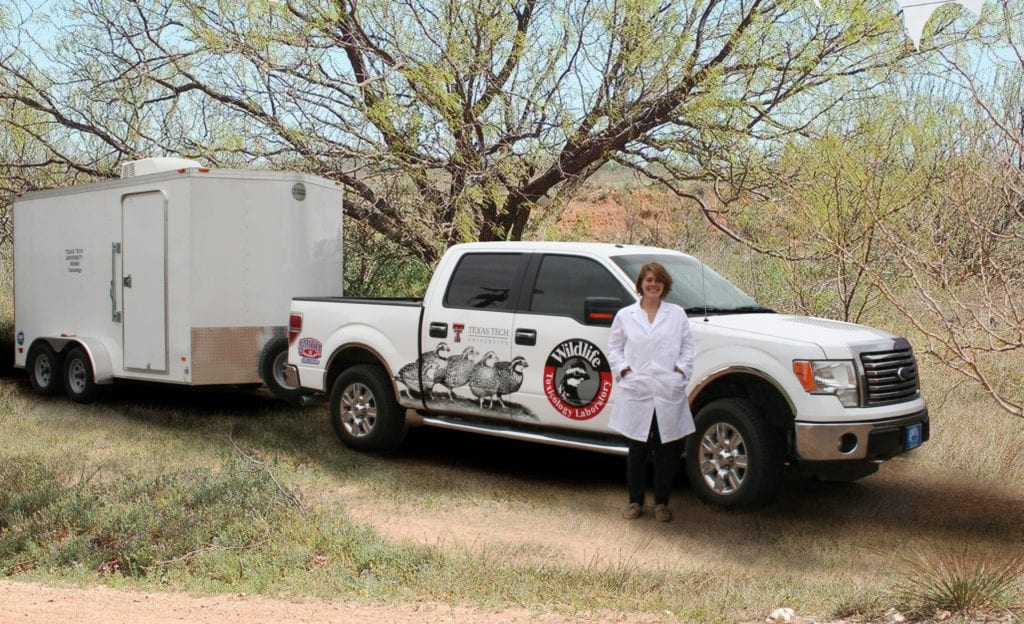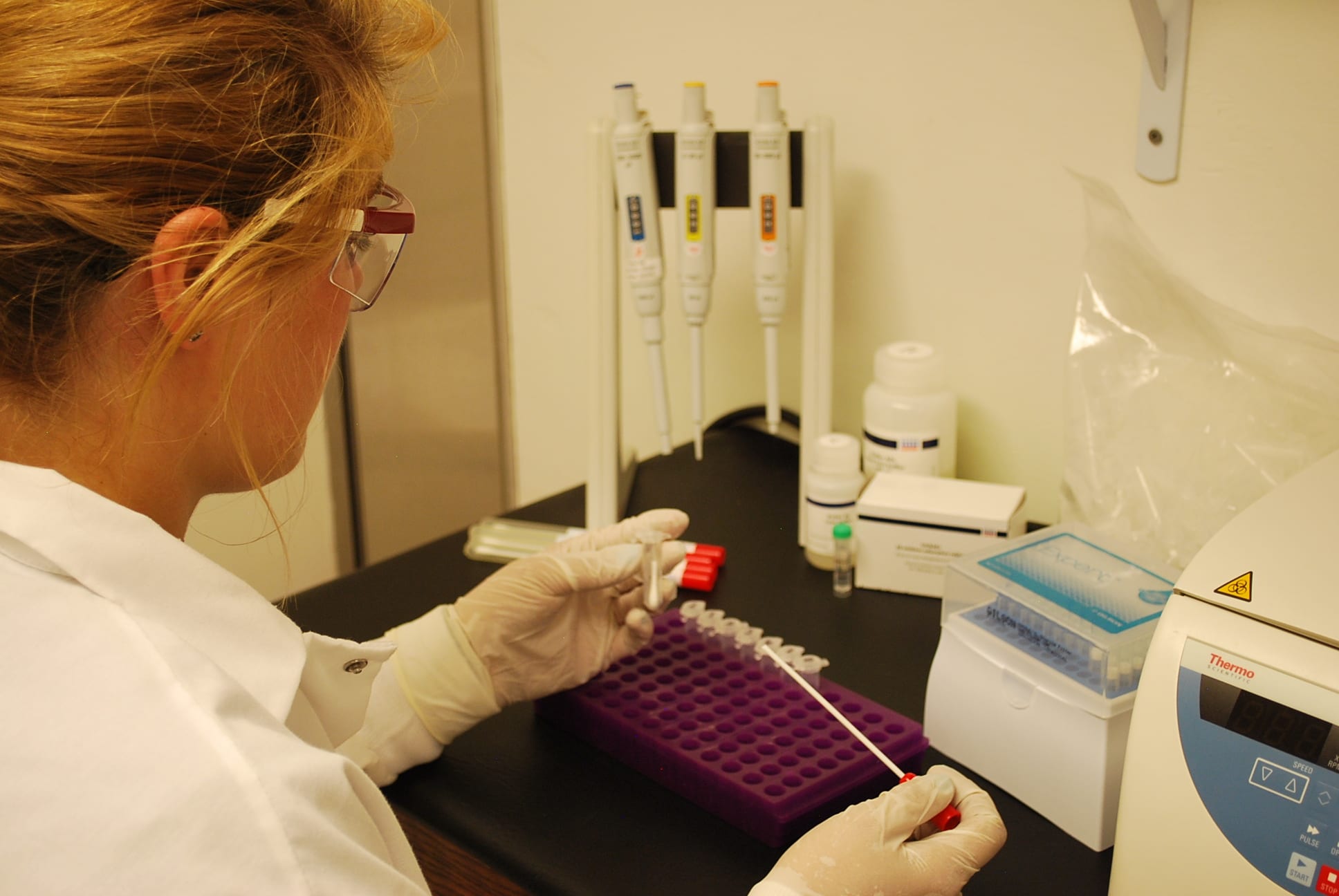Story by Craig Nyhus, Lone Star Outdoor News
Kendall Blanchard’s research as part of her Master’s degree at Texas Tech didn’t just help quail researchers learn more about eyeworms and caecal worms as they relate to temperature and precipitation changes. The research won the Texas Tech University Graduate School Outstanding Thesis Award for 2019 in the category of Biology/Life Sciences.
Blanchard, a graduate of Virginia Tech University with a degree in Wildlife Conservation, helped develop the Mobile Research Laboratory at Texas Tech that allowed researchers to perform nonlethal assessments, including examining bobwhite quail for the two parasites.
“We used the mobile laboratory to look into the seasonal factors for quail and develop a predictive statistic of the probability of what might increase or decrease the number of caecal worms,” Blanchard said.
As with any research intended for peer-reviewed publications, a great deal of data were analyzed over 2 1/2 years, and a conclusion came to the forefront.

“I did find that temperature and precipitation influenced both the number of the caecal worms and eyeworms,” she said. “The number of caecal worms were greatest at lower temperatures and lower precipitation, so cool and dry.”
Blanchard also found the reproduction of the parasites increased.
“Basically, the quail consumes an infected grasshopper and the larva migrate to the eye or to the cecum (intestines),” she said. “Then, the adults shed eggs which go down into the feces. We assessed the eggs within the feces in the mobile lab. A grasshopper then can come through, eat that feces, becoming infective to another bobwhite.”
Blanchard’s research, the first preliminary study investigating climatic influences with predictive statistics on eyeworm and caecal worm infection of northern bobwhite, will be used to help generate a temperature range that may influence future eyeworm reproduction.
“I expect it also will be used in the application of the medicated feed for quail,” she said.
With respect to the parasites, Blanchard said some additional research would be helpful.
“We didn’t find significance between the total number of eyeworms in quail and the temperature or precipitation,” she said. “I think that could use a more robust study.”
Texas Tech researchers, led by Dr. Ronald Kendall, expect a medicated feed developed for quail will soon be approved by the Federal Drug Administration and available.
“Blanchard’s work was critical to our surveillance of wild bobwhites throughout the Rolling Plains and monitoring the infection levels,” said Dr. Kendall. “The mobile lab could identify infection and the spread of infection in live birds. Her contribution is cutting-edge science and helps advance wildlife management techniques.
She proved we can do DNA-type molecular biology on your farm and not in a lab at a university.”
With respect to medicated feed, Dr. Kendall said the research will help determine the timing of and when landowners may want to treat an area.
“What we are continuing to find as a pattern is when the levels of infection get high, we continue to lose our quail,” he said.
Now that Blanchard has moved on, Dr. Kendall said the team of researchers will keep moving forward.
“We have 33 scientific papers published and more on the way,” he said. “We’re following the science.”
Two chapters of Blanchard’s research have already been published, with a third having been accepted for publication, a rare feat for a graduate student. Having graduated from Texas Tech in May, she now is seeking a Ph.D. position. Not having hunted, and only fished sporadically, the world of wildlife biology interested her.
“I’m interested in hunting and fishing in the future,” she said.
If she wants to return to Texas, her former boss said she is welcome.
“She has an open door to come back,” Dr. Kendall said.


